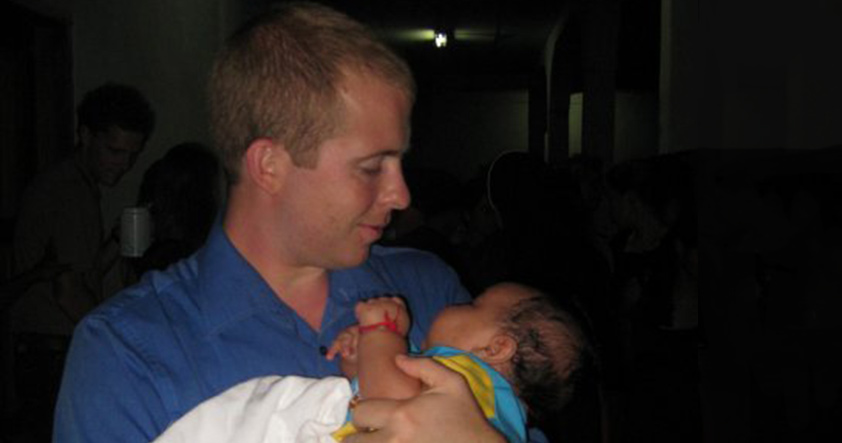
SCAN’s Associate Director of Mobilization, Ryan Murphy, spent two years in rural Honduras.
My heart breaks every time I see images of the migrant caravan traveling through Mexico or hear stories about children being tear gassed, separated and detained away from their parents at the border. It feels personal for me.
After graduating college in 2008, I spent two years in rural Honduras, volunteering at an orphanage where I helped care for 50 children and taught first and second grade at the community school. During my brief time in the country, I witnessed an escalation of violence and poverty that still plagues the country.
There were several times that I feared for the safety and well-being of the children and the community I loved. On two separate occasions, armed bandits broke in the orphanage in an attempt to rob the facility. Our security guard was severely harmed during one of the attempts, but luckily survived. While he was healing, I took on the responsibilities of guarding the facility at night, while maintaining my obligation to teach during the day.
Looking back on my experience, I am thankful that my family in Seattle will never know such violence and fear. Yet I am devastated for the many children and families who are stuck in such despair. Over the years, I have known four unaccompanied minors and one family who have fled Honduras for the United States. The dangers in their home country mounted to the point where it was no longer safe for them to stay, so risking the journey north appeared to be their only option. Thankfully, none of them were harmed on their way to the U.S., which is often not the case.
Today, an estimated 3,500 people from Central America’s Northern Triangle – Honduras, Guatemala, and El Salvador - are fleeing extreme poverty and violence. These migrants—including children—risk unimaginable horrors along the way. The caravans were formed in order to protect those fleeing, as there is safety in numbers. Far from being an “invasion” of our country, as some, including the President, have alleged, these migrants are seeking shelter from the violence in their home countries.
However, even if they do make it to the U.S. border, the ordeal is far from over. Recent reports of tear gas used on families and children have sparked widespread concern. Additionally, the Trump administration proposed regulations that would keep immigrant children and families in jail-like detention centers indefinitely. The children pay the real price in these deplorable detention centers.
I’m constantly wondering, what should the U.S. response be? Here are three ideas:
- End the cruel treatment at the border. Tear gas should never be used on children. The situation at the border is complicated, but there are humane, alternative forms of crowd control that won’t threaten innocent children. These families have a legal right to apply for asylum and should be treated fairly.
- Keep families together, and end indefinite detention. During the comment period for the Trump administration’s proposed regulation, more than 50,000 Save the Children Action Network supporters demanded an end indefinite detention and family separation. And Save the Children is actively working to assist migrant children and their families with financial and communications support, legal representation and in the case of separation, family reunification.
- Solve the root of the problem. Poverty, violence and unrest plague many families in the Northern Triangle on a daily basis. Save the Children has focused on providing education, protection and peace-building programs in that region. It’s also working to empower families and communities to achieve sustainable growth.
Children should not have to experience the trauma that comes from serious daily threats, a terrifying journey, being forcefully removed from their parents or facing dangers at the border. Together, let’s build a better future for these kids.